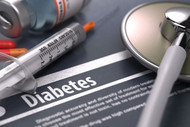Four Warning Signs Your Diabetes Is Getting Worse
Aug 17th 2021
Diabetes affects millions of people around the world. While this life-altering disease is manageable when treatment plans are followed, it can be worse for those who fail to properly monitor and maintain their diets. Some people simply have no idea that they have diabetes and continue to live without making appropriate changes. When diabetes is unchecked, and blood sugar levels are not carefully monitored and controlled, it can lead to many dangerous health problems.
Increased Infections
High blood sugar levels increase the body’s ability to develop infections while decreasing its ability to fight them off successfully. For example, Ear, yeast, or urinary tract infections may be more frequent than usual. Illnesses can be burdensome for the body’s immune system, quickly spiraling out of control without antibiotics. The longer you let an infection rage out of control, the more difficult it is to stifle it and the more at risk you will be for developing sepsis which can be life-threatening.
Worsening Vision
Diabetes can wreak havoc on your eyes over time, causing a myriad of potential problems. Uncontrolled diabetes can lead to a diabetic eye disease that encompasses conditions like glaucoma and cataracts that can seriously impair your vision. If you notice your vision worsening, you should see an ophthalmologist discuss diagnosis and treatment options to keep your eyes as healthy as possible.
Kidney Issues
High glucose levels can damage red blood vessels throughout the body. Vital organs such as the kidney are especially vulnerable to damage when diabetes goes unchecked. Signs that your kidney may be negatively impacted include pain in the lower back region, blood in the urine, or intense urinary tract infections. If you experience any of these symptoms, seek medical care to prevent further damage to your kidneys and medical treatment for your diabetes.
Numbness Or Tingling Sensations
Prolonged high blood glucose levels can damage nerves. Numbness and tingling sensations can be noticed, especially in the hands and feet, and are often diagnosed as diabetic neuropathy. This condition cannot be reversed and can get progressively worse over time, impacting normal daily function.
Managing Diabetes Successfully
Medical treatment planning is the best way to manage your diabetes successfully and stave off any further harm to your body. Taking medications as prescribed, routinely checking your blood sugar levels, working your weight, eating a healthy diet, incorporating physical activity into your routine, and quitting bad habits like smoking will all help you remain as healthy as possible.

